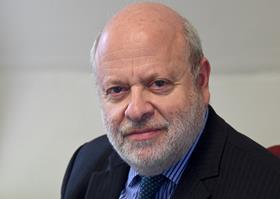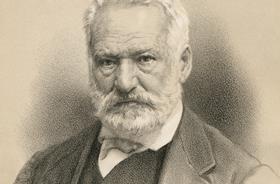
BBC One is showing ‘Les Misérables’ – the novel, not the musical - every Sunday evening for six weeks. We are just over halfway through. Justice is one of its major themes, and in particular the question of whether someone who has committed a crime can in due course find redemption. To summarise over 1200 pages of Victor Hugo’s original book, can someone who has stolen a loaf of bread to prevent starvation become a good person?
The forces of justice, represented by Javert the police chief, believe in the theory of ‘once a criminal, always a criminal’, meaning that nothing can change a person’s nature. Valjean, the hero, shows by his actions in a variety of ways that that is not the case, including saving the life of his tormentor, Javert. You have to acclimatise to the operatic quality of the novel, full of melodrama and coincidence.
We have moved so far from Javert’s beliefs today that it seems incredible that anyone can hold that humans cannot redeem themselves. Many modern films and books are based on our trust that such a thing is always possible.
And yet we are faced with our own redemptory challenges. Can someone who has fought for ISIS in Syria be trusted afterwards to stay within the law (I know, several leagues away from stealing a loaf of bread)? What about someone who has gone out to marry an ISIS fighter? What about that other group considered beyond the pale of our pity, sexual molesters of children? Can they ever redeem themselves?
This connects to our old left-right dialogue about the causes of crime and its treatment. There seems to be a general perception on the right that the cosseting of criminals – which others see as an attempt to lead them along the path to redemption – has gone too far and is the incorrect method for combatting crime. This view leans closer to Javert than Valjean.

One of the main characters in the novel becomes a lawyer. Marius, who eventually marries Jean Valjean’s ward, Cosette, who is the daughter of the dead Fantine, breaks with his rich grandfather who has brought him up, as a result of political differences which echo the passion of our own Brexit discussion. (Don’t blame me for the complexity of the novel’s plot.) The grandfather is a royalist, overjoyed at the restoration of the monarchy, and Marius discovers the history of his father as a Bonapartist hero and is subsequently converted to his father’s views.
To support himself in his newfound poverty out of his grandfather’s house, he studies to become a lawyer and qualifies. His grandfather, an aristocrat, scoffs that Marius cannot be a baron and a lawyer, and describes Marius to his friends as a pettifogger in his new career. Marius in any case soon gives it up for something a little more secure – as a lowly jack-of-all-trades for a publisher – although there is a suggestion he takes it up again after his own happy ending.
Overall, the law does not come well out of the novel. Javert, its chief representative, is generally viewed as a villain for exacting the letter of the law so relentlessly. He appears particularly villainous because the background of nineteenth century France in the novel is one of great social injustice, which the law does nothing to correct. There are echoes today in continuing claims that the law is only for the rich.
And one of the true villains of the novel, Félix Tholomyès, who abandons Fantine with their joint child to return to his father’s estate, thus leading to her downfall, becomes a lawyer. Victor Hugo is very sarcastic about how he grows into a wealthy, influential and severe man.
The people who steal, on the other hand – Valjean, for instance, or also Gavroche, the street urchin – become heroes, not because of their stealing but despite it, because their actions show a broader view of justice, including caring for others regardless of the cost to themselves.
The law has vastly improved its range and effectiveness since, but any lawyer watching will see continuing echoes of our own day, despite the 150 year gap since it was written.
(Here is a personal note. Believe it or not, I appear in Episode 5, which will be shown this Sunday. Because of Belgian film funding, many of the minor parts are played by local Belgian actors. I play a baker from whom Gavroche steals when my back is turned. Blink, and you will miss me. I have not yet seen it, and I might have been edited out altogether or cut into near-invisibility.
On a hot day last April, Gavroche stole from me about twenty times from 9 in the morning to 3 in the afternoon to get that scene right.)



























No comments yet